Navigating the complexities of sea freight from China to Moldova can be a daunting task for importers, especially with the myriad of options available and the factors influencing shipping costs and transit times. However, choosing sea freight for your shipments offers distinct advantages, including cost-effectiveness, capacity for large shipments, and a variety of container options to suit diverse needs. This ultimate guide provides an in-depth look at sea freight, including the types of services available, key factors affecting costs, and essential considerations for ensuring a smooth shipping process. Whether you are a seasoned importer or new to international shipping, understanding these elements will empower you to make informed decisions that optimize your logistics strategy.
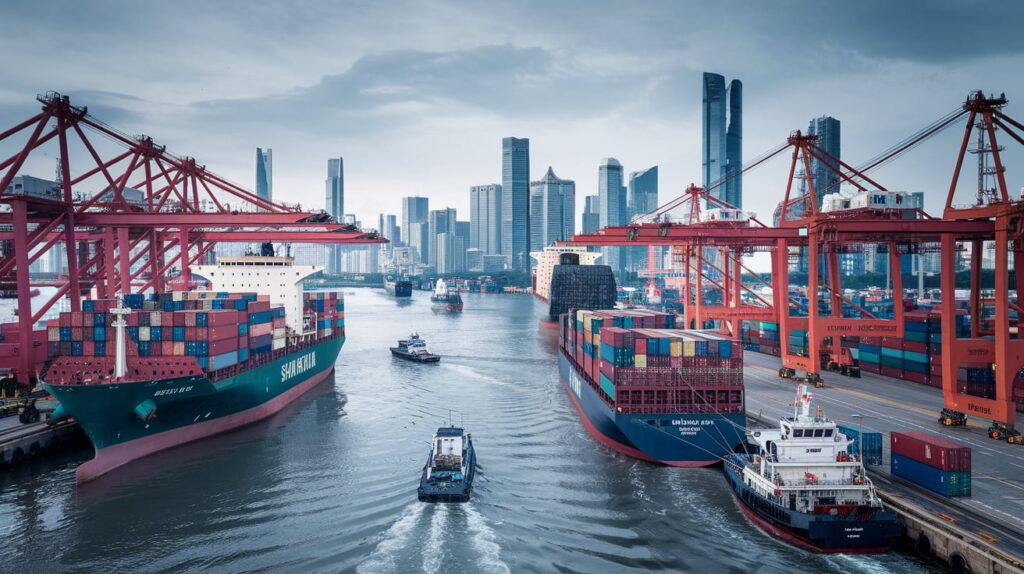
Why Choose Sea Freight for Shipping from China to Moldova?
Shipping goods from China to Moldova using sea freight has gained popularity among importers due to its cost-effectiveness and efficiency. Here, we delve into the compelling reasons why sea freight is the preferred method for transporting goods to this Eastern European nation.
Cost-Effective
One of the primary advantages of sea freight is its affordability. Compared to other shipping methods such as air freight, sea freight offers significantly lower shipping rates per kilogram. With shipping costs often influenced by distance and volume, sea freight allows importers to benefit from economies of scale, especially when transporting large quantities of goods. Importers can save substantially on their logistics expenses, which is crucial for maintaining competitive pricing in their markets.
Accommodates Large Shipments
Sea freight is particularly advantageous for businesses that need to ship large quantities of goods. Unlike air freight, which may impose strict weight limits and higher costs for oversized shipments, sea freight can handle substantial loads without incurring prohibitive fees. This makes it an ideal choice for businesses looking to import bulk products, raw materials, or equipment, ensuring that their supply chains remain robust and responsive.
Versatile Container Options
Sea freight offers a variety of container options tailored to meet different shipping needs. These options include:
- Standard containers: Suitable for general cargo.
- Refrigerated containers: Ideal for perishable goods that require temperature control.
- Open-top containers: Designed for oversized cargo that cannot fit into standard containers.
This versatility allows importers to select the most appropriate container type for their specific shipment, ensuring optimal handling and protection of their goods.
Reliable Transit Times
While sea freight may not be as fast as air freight, it provides reliable transit times that are predictable and consistent. The shipping schedule is generally well-established, allowing importers to plan their logistics effectively. Additionally, modern shipping vessels are equipped with advanced tracking systems, enabling businesses to monitor their shipments in real-time, thus enhancing transparency and operational efficiency.
Environmentally Friendly
The environmental impact of shipping is a growing concern for many businesses. Sea freight is considered one of the most environmentally friendly transportation methods, producing lower carbon emissions per ton of cargo compared to other modes of transport. By choosing sea freight, companies can contribute to sustainability efforts and enhance their corporate social responsibility (CSR) initiatives, which can appeal to environmentally conscious consumers.
Reduced Risk of Damage
Transporting goods via sea freight often involves more careful handling compared to other shipping methods. Goods are securely packed into containers, minimizing the risk of damage during transit. Additionally, shipping containers are designed to withstand harsh marine conditions, which further protects the cargo from external elements. Importers can have peace of mind knowing that their products are in safe hands, leading to fewer claims and losses.
Types of Sea Freight Services
When considering sea freight for shipping from China to Moldova, it is essential to understand the various service options available to meet diverse shipping needs. Below, we explore two primary types of sea freight services.
Less Than Container Load (LCL)
Less Than Container Load (LCL) is an ideal solution for importers with smaller shipments. This service allows multiple consignments from different businesses to share container space, optimizing costs for each party involved. LCL shipping is particularly beneficial for companies that do not require a full container but still want to take advantage of sea freight’s cost efficiency. It allows for flexibility in shipping schedules and minimizes inventory holding costs.
| Feature | LCL |
|---|---|
| Minimum Weight | Typically starts around 1 cubic meter |
| Transit Time | Slightly longer due to consolidation |
| Cost Structure | Pay for space used in the container |
| Ideal For | Small shipments |
Full Container Load (FCL)
Full Container Load (FCL) is suited for larger shipments where the importer requires exclusive use of an entire container. This option ensures that goods are transported directly without being combined with other shipments. As a result, FCL typically offers faster transit times and reduced risks of damage due to fewer handling processes. Importers seeking to transport bulk products or equipment often prefer FCL for its efficiency and reliability.
| Feature | FCL |
|---|---|
| Container Size Options | 20ft, 40ft, and 40ft high cube |
| Transit Time | Generally faster due to direct routing |
| Cost Structure | Flat fee for full container |
| Ideal For | Large shipments |
In conclusion, Dantful International Logistics offers a highly professional, cost-effective, and high-quality one-stop international logistics service provider for global traders. Whether you are considering LCL or FCL for your shipment from China to Moldova, Dantful is equipped to meet your shipping needs with tailored solutions and excellent customer support. For more information on our sea freight services, please visit Dantful International Logistics.
Read More:
- Shipping From China To Netherlands
- Shipping From China To Spain
- Shipping From China To Germany
- Shipping From China To France
- Shipping From China to Italy
- Shipping From China To Poland
- Shipping From China to United Kingdom
Factors Affecting Sea Freight Costs and Delivery Times
When considering shipping goods from China to Moldova via sea freight, several crucial factors can significantly influence both the costs and delivery times. Understanding these factors can help businesses make informed decisions and optimize their logistics strategies.
Shipping Ports
The choice of shipping ports plays a pivotal role in determining transit times and overall costs. Both China and Moldova boast several major ports that serve as critical nodes in maritime trade. Below is a comparison of key shipping ports in both countries.
| Port | Location | Country | Typical Transit Time to Moldova (Days) | Notes |
|---|---|---|---|---|
| Shanghai | Eastern China | China | Approximately 30-35 | Major international shipping hub. |
| Shenzhen | Southern China | China | Approximately 30-35 | Known for electronics and manufacturing goods. |
| Ningbo | Eastern China | China | Approximately 30-35 | Significant port for bulk shipping. |
| Constanța | Southeastern Romania | Moldova | N/A | Key entry point for goods from the sea. |
| Chișinău (Inland) | Central Moldova | Moldova | N/A | Goods must be transported from Constanța. |
The proximity of a port to the destination, along with its capabilities and logistical infrastructure, greatly impacts transit times. Selecting efficient ports can result in significant savings in shipping duration and costs.
Shipment Size and Weight
The size and weight of the shipment are critical determinants of sea freight costs. Generally, larger and heavier shipments will incur higher freight charges. Carriers often use weight and volume calculations (also known as volumetric weight) to determine the shipping cost. Understanding the specifics of shipment size and weight can help businesses accurately estimate their freight costs.
- LCL Shipments: For Less Than Container Load (LCL) shipments, costs are calculated based on the volume of space occupied in the container.
- FCL Shipments: In the case of Full Container Load (FCL), shipping costs are typically fixed per container, regardless of whether the container is fully packed or not.
Commodity Type
The type of goods being shipped can also significantly affect freight costs and delivery times. Certain commodities may have restrictions and special requirements that can increase the complexity of shipping arrangements.
Hazardous Materials: Shipping hazardous materials requires compliance with strict regulations, which may entail additional fees for special handling and documentation, longer transit times for safety inspections, and potential limitations on available shipping routes.
Perishable Items: Perishable goods, such as food and pharmaceuticals, often require refrigerated containers and expedited shipping to minimize spoilage. This need for temperature control and quicker delivery can increase costs significantly.
Understanding these commodity-specific regulations and requirements is crucial for ensuring a smooth shipping process and avoiding unexpected delays or costs.
Sea Freight Costs from China to Moldova
The total cost of shipping goods from China to Moldova involves several components. Below are the primary factors influencing sea freight costs, including cost per container and additional fees and charges.
Cost per Container
The rates for 20ft and 40ft containers vary based on the specific port pairs and shipping conditions. The following table provides a comparative overview of typical rates.
| Container Size | Estimated Cost (USD) | Port Pair (Example) | Notes |
|---|---|---|---|
| 20ft | $1,200 – $2,000 | Shanghai to Constanța | Standard rates; fluctuations in demand may apply. |
| 40ft | $2,000 – $3,500 | Shenzhen to Constanța | Higher rates due to increased capacity. |
| 20ft | $1,500 – $2,500 | Ningbo to Chișinău | Variability based on port congestion and season. |
| 40ft | $2,500 – $4,000 | Shanghai to Chișinău | Premium rates for expedited services. |
These costs can fluctuate based on market demand, fuel prices, and seasonal variations, making it essential for businesses to stay updated on current market conditions.
Additional Fees and Charges
Beyond container rates, several additional fees and charges can impact the total shipping cost from China to Moldova. These may include:
- Customs Duties and Taxes: Import duties and taxes applied by the Moldovan authorities, varying based on the type and value of goods.
- Documentation Fees: Costs associated with preparing necessary shipping documents, including bills of lading and customs declarations.
- Handling and Storage Costs: Fees incurred for loading, unloading, and storing goods at ports or warehouses, particularly for LCL shipments that require consolidation.
Understanding these additional charges and incorporating them into budgeting plans will enable businesses to better predict their shipping expenses and enhance their overall logistics management.
In light of these factors, partnering with a professional freight forwarder such as Dantful International Logistics can provide valuable insights and assistance in navigating the complexities of sea freight, ensuring efficient and cost-effective shipping from China to Moldova.
Sea Freight Transit Times from China to Moldova
When planning shipments, understanding sea freight transit times is crucial for businesses importing goods from China to Moldova. Various factors can affect delivery times, whether it’s port-to-port or door-to-door delivery.
Port-to-Port Delivery
Port-to-Port Delivery refers to the transport of goods from one port to another without additional services involved in the final delivery stage. For shipping from China to Moldova, major port pairs such as Shanghai to Constanța and Shenzhen to Constanța are frequently used.
Typical Transit Times for Major Port Pairs
The following table outlines typical transit times for key port pairs, providing businesses with an estimate of how long it takes for goods to reach their destinations.
| Port Pair | Typical Transit Time (Days) | Notes |
|---|---|---|
| Shanghai to Constanța | 30-35 | Direct service with minimal delays expected. |
| Shenzhen to Constanța | 30-35 | Often involves multiple shipping lines. |
| Ningbo to Constanța | 30-35 | Regular scheduled sailings available. |
| Guangzhou to Constanța | 32-37 | May experience delays during peak seasons. |
Factors Affecting Port-to-Port Delivery Times
Shipping Routes: The selected shipping route can have a direct impact on transit times. Direct routes typically offer quicker delivery, while routes that involve transshipment may take longer.
Weather Conditions: Adverse weather can lead to delays in shipping schedules. Seasonal storms or rough sea conditions can impede vessel operations.
Port Congestion: High traffic at ports can slow down loading and unloading processes, affecting overall shipping times. Importers should monitor seasonal trends that may lead to congestion.
Vessel Speed: The type of vessel and its speed capabilities also play a role in determining transit times. Different shipping lines may operate vessels with varying speeds.
Door-to-Door Delivery
Door-to-Door Delivery encompasses the entire shipping process, starting from the origin to the final destination, including customs clearance and last-mile delivery. This method offers convenience for importers, as it simplifies logistics management.
Importance of Efficient Customs Clearance
Customs clearance is a critical component of door-to-door delivery. Efficient customs processes can significantly reduce delivery times. Factors influencing customs clearance include:
Documentation Accuracy: Ensuring that all required documents, such as commercial invoices and packing lists, are accurate and complete can expedite processing times.
Compliance with Local Regulations: Familiarity with Moldovan import laws and regulations can help avoid unnecessary delays due to non-compliance.
Customs Broker Expertise: Engaging a knowledgeable customs broker can streamline the clearance process, as they can navigate complex regulations and facilitate communication with customs authorities.
Impact of Last-Mile Delivery
Last-mile delivery refers to the final leg of the shipping journey, where goods are transported from the port or a distribution center to the end customer. Key considerations include:
Transportation Infrastructure: The efficiency of local transportation systems can affect last-mile delivery times. Areas with well-developed logistics networks tend to experience faster delivery.
Delivery Scheduling: Flexibility in delivery scheduling can enhance customer satisfaction and improve overall efficiency. Businesses should consider offering various delivery options to meet customer needs.
Warehousing Solutions: Utilizing reliable warehousing services can help streamline the last-mile process. Efficient warehousing can reduce delays in product availability for final delivery.
Choosing a Reliable Freight Forwarder
Selecting a dependable freight forwarder is crucial for ensuring smooth logistics operations when shipping from China to Moldova. Various factors should be taken into account during this selection process.
Factors to Consider
Experience in China-Moldova Trade
A freight forwarder with a proven track record of handling shipments between China and Moldova can offer valuable insights and tailored solutions. They should possess in-depth knowledge of:
Cultural Nuances: Understanding cultural differences can facilitate smoother negotiations and business transactions.
Market Conditions: Familiarity with current market trends, pricing, and demand fluctuations is essential for optimizing shipping strategies.
Service Quality and Customer Support
The level of service quality and customer support provided by a freight forwarder can significantly impact overall satisfaction. Key aspects to evaluate include:
Responsiveness: Quick and effective communication is critical, particularly when issues arise during shipping.
Personalization: A good freight forwarder should be willing to tailor services to meet the specific needs of their clients.
Technology Integration: Utilizing modern technology for tracking and managing shipments can enhance transparency and efficiency.
Customs Clearance Expertise
Customs clearance expertise is vital for minimizing delays and ensuring compliance with regulations. When evaluating a freight forwarder, consider:
Successful Track Record: Research their history of handling customs clearance for similar shipments. Positive references can indicate reliability.
Regulatory Knowledge: A proficient freight forwarder should stay updated on customs regulations in both China and Moldova, helping avoid potential compliance issues.
By considering these factors when selecting a freight forwarder, businesses can ensure efficient and reliable shipping operations from China to Moldova, supporting their overall supply chain efficiency. For comprehensive logistics solutions, Dantful International Logistics stands ready to assist with tailored freight forwarding services.

Young Chiu is a seasoned logistics expert with over 15 years of experience in international freight forwarding and supply chain management. As CEO of Dantful International Logistics, Young is dedicated to providing valuable insights and practical advice to businesses navigating the complexities of global shipping.











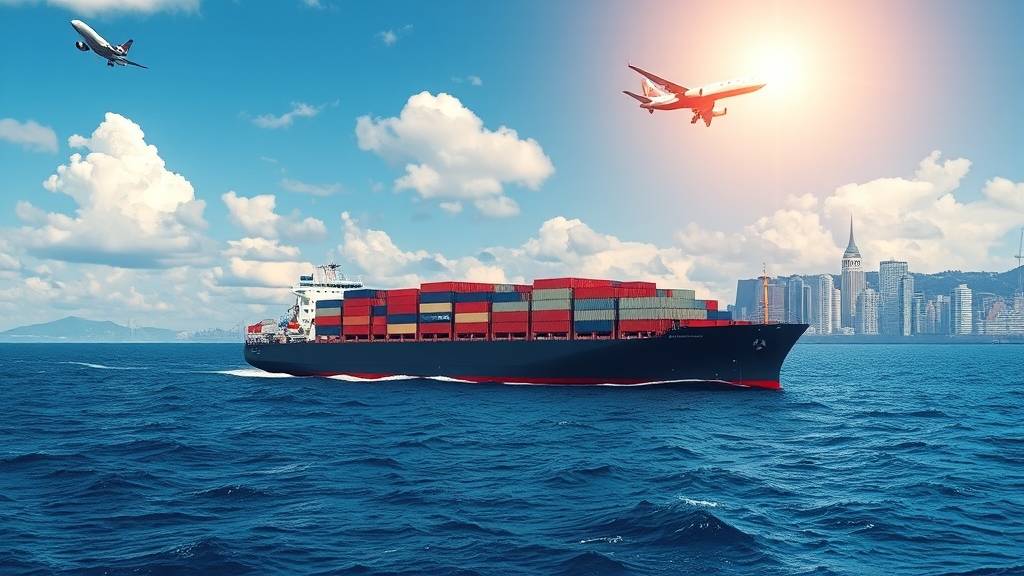

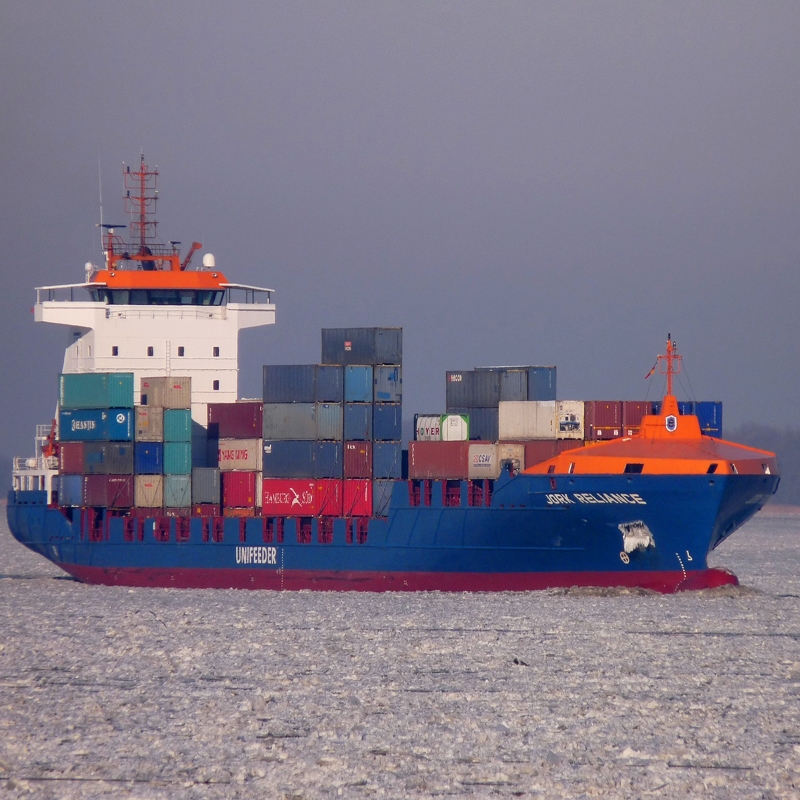
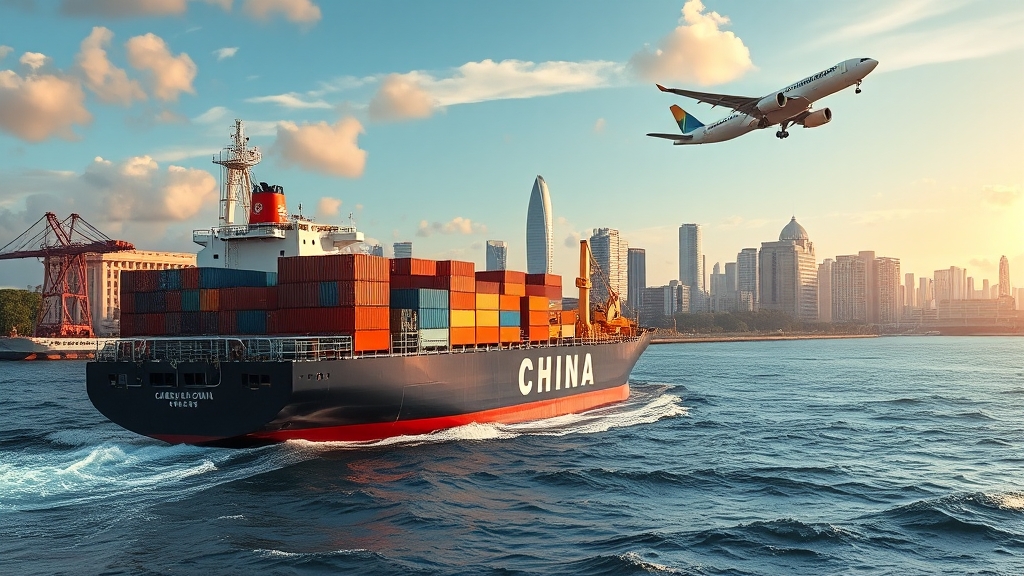
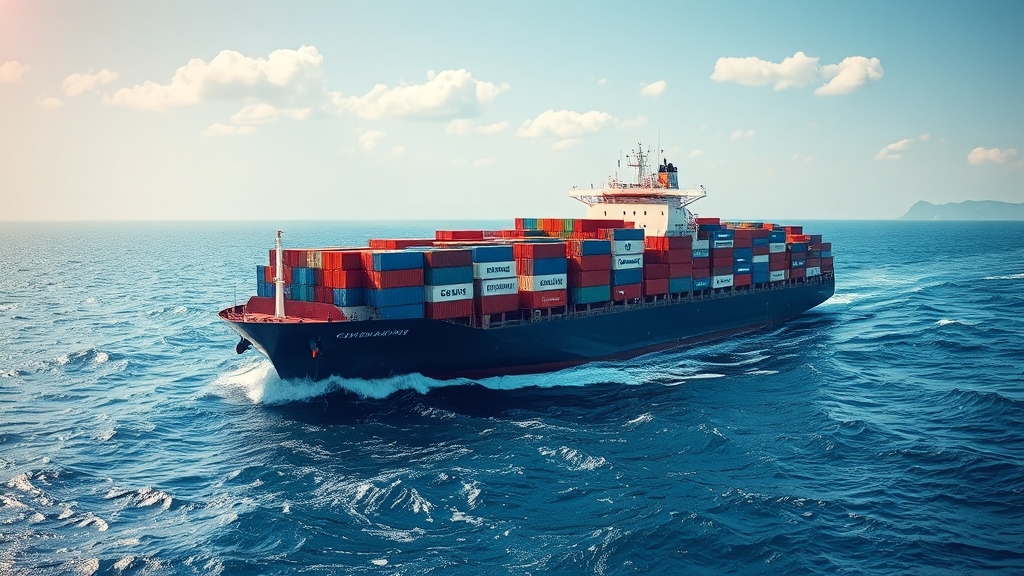





 Afrikaans
Afrikaans Shqip
Shqip አማርኛ
አማርኛ العربية
العربية Հայերեն
Հայերեն Azərbaycan dili
Azərbaycan dili Euskara
Euskara Беларуская мова
Беларуская мова বাংলা
বাংলা Bosanski
Bosanski Български
Български Català
Català Cebuano
Cebuano Chichewa
Chichewa 简体中文
简体中文 繁體中文
繁體中文 Corsu
Corsu Hrvatski
Hrvatski Čeština
Čeština Dansk
Dansk Nederlands
Nederlands English
English Esperanto
Esperanto Eesti
Eesti Filipino
Filipino Suomi
Suomi Français
Français Galego
Galego ქართული
ქართული Deutsch
Deutsch Ελληνικά
Ελληνικά Kreyol ayisyen
Kreyol ayisyen Harshen Hausa
Harshen Hausa Ōlelo Hawaiʻi
Ōlelo Hawaiʻi עִבְרִית
עִבְרִית हिन्दी
हिन्दी Hmong
Hmong Magyar
Magyar Íslenska
Íslenska Igbo
Igbo Bahasa Indonesia
Bahasa Indonesia Gaeilge
Gaeilge Italiano
Italiano 日本語
日本語 Basa Jawa
Basa Jawa ಕನ್ನಡ
ಕನ್ನಡ Қазақ тілі
Қазақ тілі ភាសាខ្មែរ
ភាសាខ្មែរ 한국어
한국어 كوردی
كوردی Кыргызча
Кыргызча ພາສາລາວ
ພາສາລາວ Latin
Latin Latviešu valoda
Latviešu valoda Lietuvių kalba
Lietuvių kalba Lëtzebuergesch
Lëtzebuergesch Македонски јазик
Македонски јазик Malagasy
Malagasy Bahasa Melayu
Bahasa Melayu മലയാളം
മലയാളം Maltese
Maltese Te Reo Māori
Te Reo Māori मराठी
मराठी Монгол
Монгол ဗမာစာ
ဗမာစာ नेपाली
नेपाली Norsk bokmål
Norsk bokmål پښتو
پښتو فارسی
فارسی Polski
Polski Português
Português ਪੰਜਾਬੀ
ਪੰਜਾਬੀ Română
Română Русский
Русский Samoan
Samoan Gàidhlig
Gàidhlig Српски језик
Српски језик Sesotho
Sesotho Shona
Shona سنڌي
سنڌي සිංහල
සිංහල Slovenčina
Slovenčina Slovenščina
Slovenščina Afsoomaali
Afsoomaali Español
Español Basa Sunda
Basa Sunda Kiswahili
Kiswahili Svenska
Svenska Тоҷикӣ
Тоҷикӣ தமிழ்
தமிழ் తెలుగు
తెలుగు ไทย
ไทย Türkçe
Türkçe Українська
Українська اردو
اردو O‘zbekcha
O‘zbekcha Tiếng Việt
Tiếng Việt Cymraeg
Cymraeg יידיש
יידיש Yorùbá
Yorùbá Zulu
Zulu